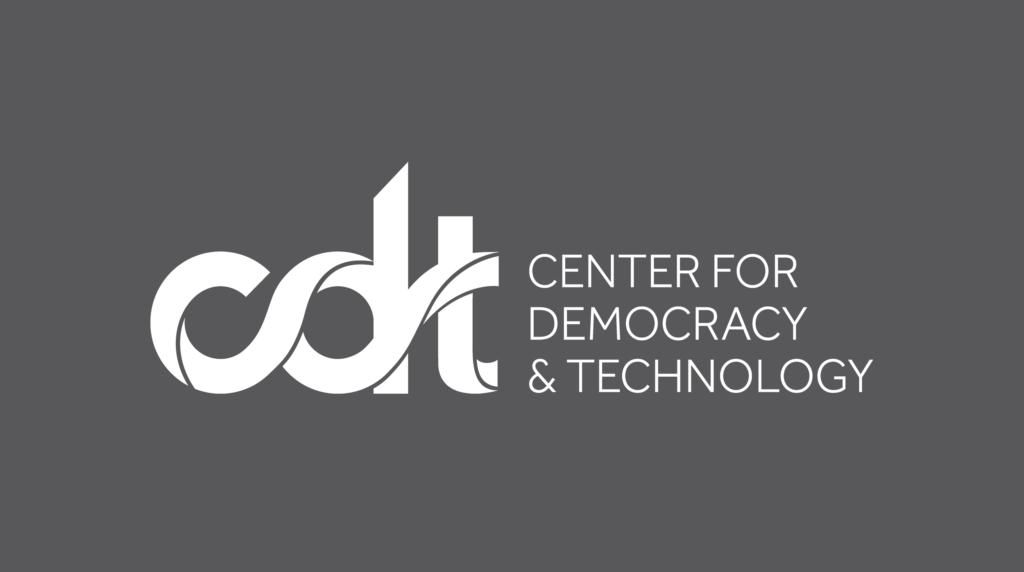Elections & Democracy, Free Expression
To Protect Elections, Protect Researchers
We cannot have free and fair elections if we don’t understand efforts to undermine them. Today, many such threats are online. Global elections are constantly threatened by foreign influence operations, domestic disinformation, and cyberattacks on election infrastructure. Independent election integrity researchers play a key role in helping us understand and mitigate these threats.
Unfortunately, these researchers face unprecedented obstacles and attacks. Their ability to conduct research is threatened by lawsuits, hostile political actors, diminished access to platform data, and platforms’ decreasing commitments to online trust and safety.
As an institutional member of the Coalition for Independent Technology Research, the Center for Democracy & Technology (CDT) is proud to support the right of civil society researchers — including those employed by public and private universities — to study online speech, including the spread of false or misleading information on social media platforms. Such research is a prerequisite for evidence-based policymaking, and serves as an important complement to research conducted by platforms themselves, which is often not made public.
Now is a particularly critical moment to support election integrity researchers. Next year is a massive election year: With the convergence of the U.S. presidential election, European parliamentary elections, and national elections in India and dozens of other countries, billions of people will be going to the polls. At the same time, the spread of generative AI threatens to exacerbate the problem of election disinformation, both by increasing its volume and by enabling even finer targeting of voter-suppressive disinformation.
Yet, over the past several months, political figures have ramped up their attacks on election disinformation researchers, mischaracterizing their work in order to support a partisan agenda. Some of the most serious attacks have come from the House Select Subcommittee on the Weaponization of the Federal Government, which has misleadingly equated election disinformation research with government censorship. These campaigns disparage researchers’ reputations and create doubt about the validity of their work, which in many cases consists of rigorous, peer-reviewed academic publications. We’ve interviewed dozens of election disinformation researchers for an upcoming CDT report on the serious challenges they face; several of them told us how these political attacks chill their ability to do their research and make them fear for their personal safety. If left unchecked, these intimidation campaigns could mark the beginning of a concerted attack on academic freedom and the right to independent research in the U.S.
Political backlash is not the only obstacle faced by researchers. As our upcoming report shows, their ability to conduct research has also been hampered by tech platforms. Platforms have a history of limiting how researchers can access their data: In 2021, for instance, Facebook suspended access for a group of NYU researchers who were studying Facebook advertising.
More recently, tech sector downsizing has resulted in the gutting of Trust and Safety teams at major platforms. Widespread layoffs have made it harder for researchers to do their work; many of the researchers we interviewed reported losing their sole points of contact at the companies. Researchers have long complained about poor access to platform data, which is key to their ability to understand what is happening online. Unfortunately, this access only appears to be getting worse, with Meta often rumored to be shutting down its CrowdTangle tool, and with both Reddit and X, the platform formerly known as Twitter, astronomically raising the cost of access to their APIs.
Researchers also face increased legal threats. In the Missouri v. Biden case, a recent injunction put unprecedented restrictions on communication between academic researchers and government officials, limiting the ability of researchers to keep the government informed of various threats to election integrity. The injunction is currently not in effect, but it has already had a chilling effect on independent research. It may drive young professionals from the field and make it more difficult to secure funding, and dissuade government officials from engaging with counter-disinformation efforts.
Under Elon Musk’s ownership, X is deepening the attack on independent research in the courts. This month, X filed a lawsuit against the Center for Countering Digital Hate (CCDH), which has documented the rise in hate speech and disinformation on the platform since Musk took over. CDT joined dozens of other organizations in expressing our concern that this lawsuit threatens researchers’ right to freedom of expression, and intimidates researchers in an effort to dissuade them from conducting research in the public interest.
CDT’s forthcoming report identifies a variety of ways to support and empower election researchers. Some of our recommendations include:
- Funders, research institutions, and nonprofits should create shared resources and practices for researchers under attack. These might include pools for legal defense and proactively developed communications plans for responding to coordinated attacks.
- Governments should clarify and be more transparent about their role in responding to election disinformation and communicating with researchers and platforms — especially in the aftermath of the injunction issued in Missouri v. Biden.
- Platforms should reinvest in trust and safety teams as soon as possible, focusing especially on civil rights specialists who can shape content moderation policies and practices.
- Platforms should expand researcher access to platform data — both of their own accord and consistent with obligations such as those imposed by the Digital Services Act in Europe.
- Platforms should designate consistent points of contact for researchers and civil society.
The 2024 election is likely to be the most favorable environment for election disinformation that the United States has seen in eight years. Dozens of other countries with major elections next year face similar threats. Protecting election integrity starts with protecting and supporting the researchers who are best positioned to understand and convey how free and fair elections are threatened.


